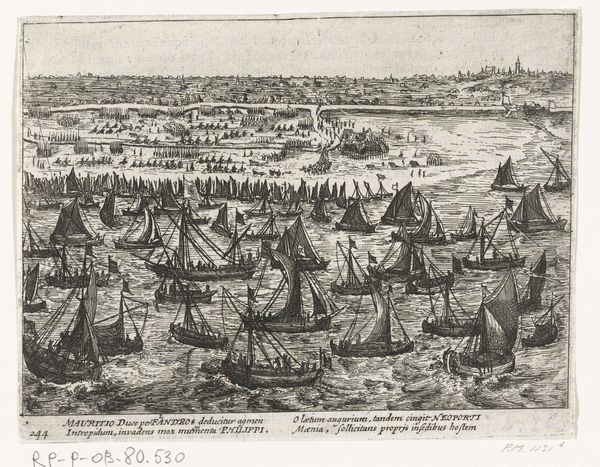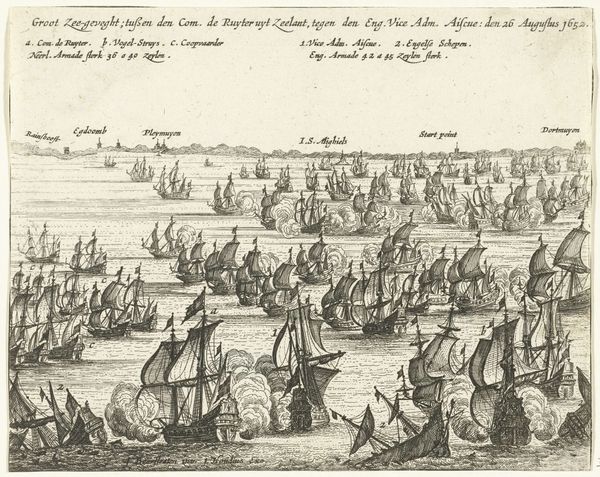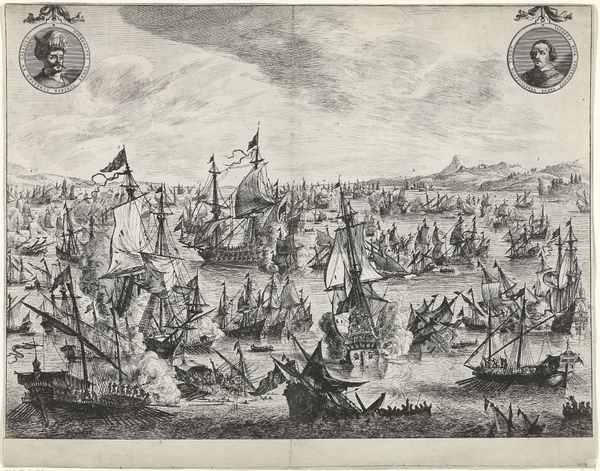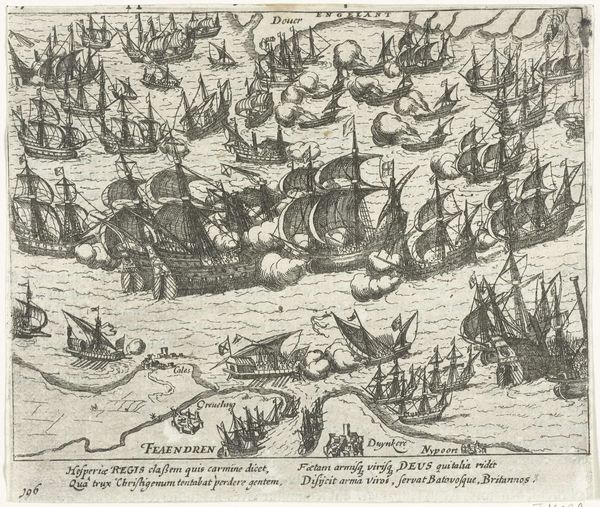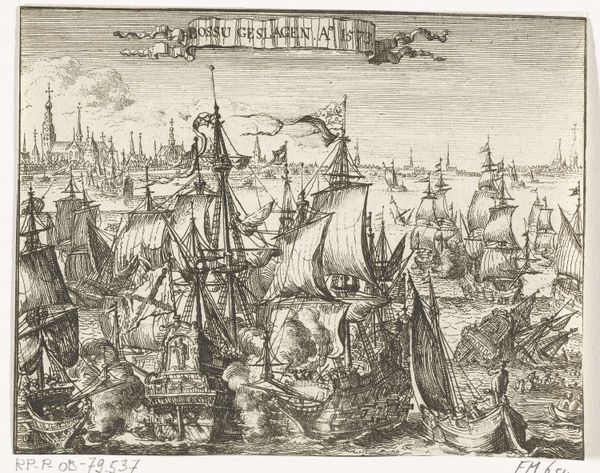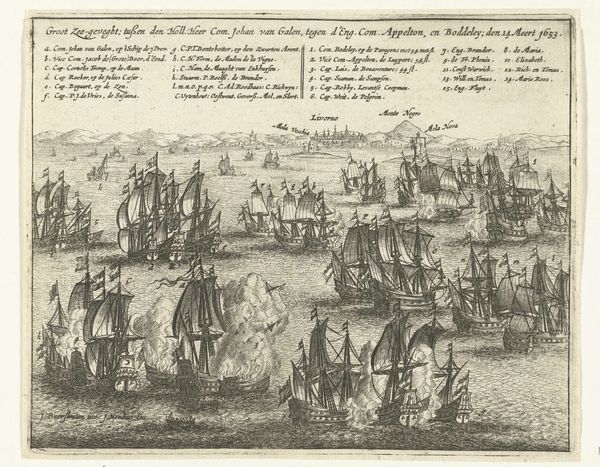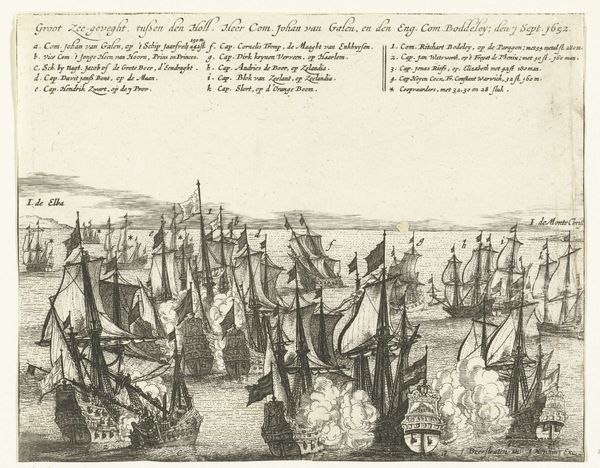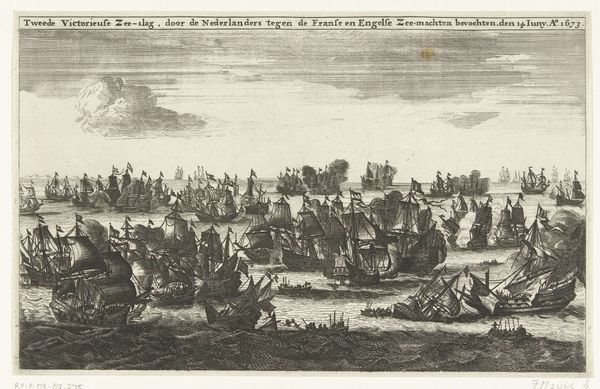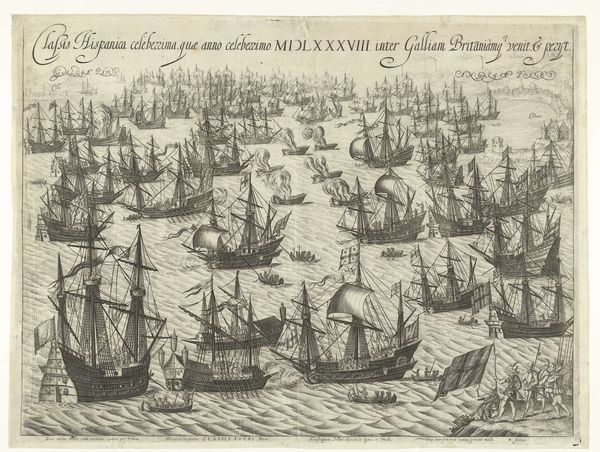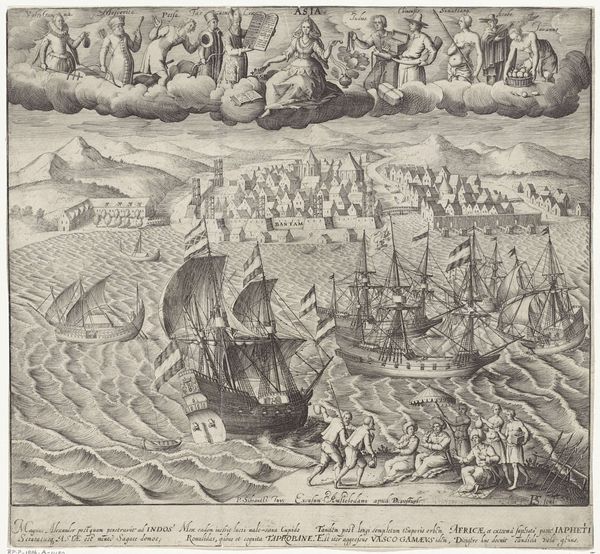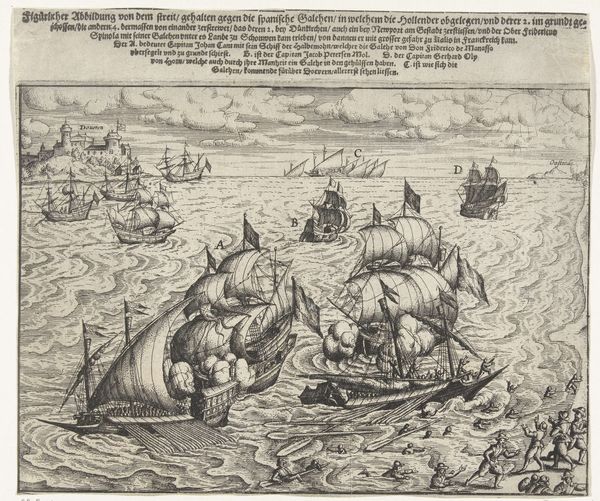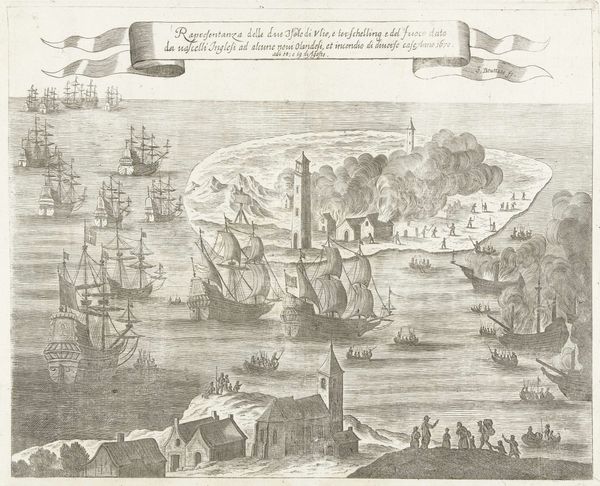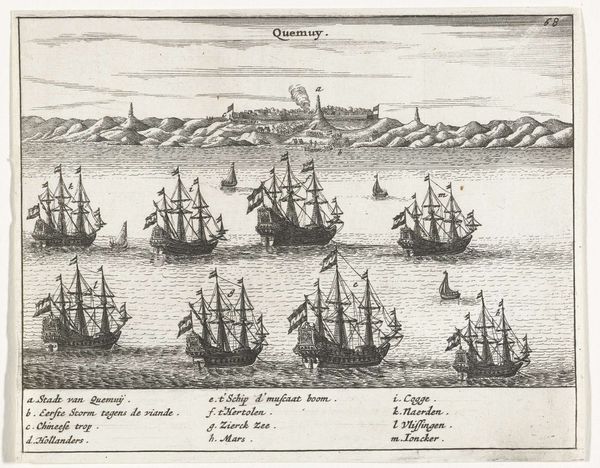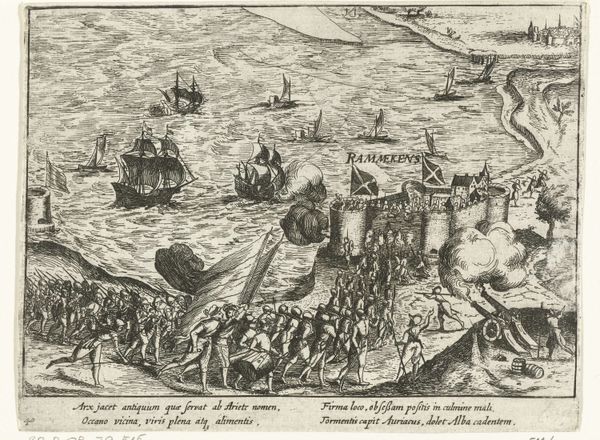
print, engraving
#
baroque
#
pen drawing
#
mechanical pen drawing
# print
#
pen illustration
#
pen sketch
#
landscape
#
personal sketchbook
#
sketchwork
#
pen-ink sketch
#
pen work
#
sketchbook drawing
#
cityscape
#
sketchbook art
#
engraving
Dimensions: height 135 mm, width 172 mm
Copyright: Rijks Museum: Open Domain
Curator: Ah, there's a kind of organized chaos here, wouldn’t you say? It's visually dense. Editor: It definitely is! We are looking at an engraving dating from 1613 to 1615, titled "The Fleet Landing at Philippine." Curator: Landing feels...generous. This is more of an *invasion*, no? The ships dominate the foreground. Editor: Well, "De vlootlanding bij Philippine", to use its original name, depicts exactly that: the arrival of a fleet at Philippine. The anonymous artist meticulously captures the scene, emphasizing the vastness and power of the arriving forces. I find it incredible how many ships are included, as it seems nearly infinite in number. Curator: Incredible and... a little chilling. All those little soldiers on board…I’d almost call this Baroque propaganda, given how it celebrates Dutch maritime strength. How do you think contemporary audiences viewed it? Editor: I agree, it serves that purpose perfectly. Back then, in the throes of the Eighty Years’ War, prints like these did more than simply depict events; they shaped public sentiment and fostered a sense of national identity. Also, note the almost dream-like, hazy skyline. That contrast is brilliant, adding almost another world looming beyond the ocean. Curator: Right! It feels both epic and strangely detached. There’s a level of detail in the ships themselves, a near-photographic rendering, but then everything beyond sort of melts into abstraction. That interplay holds such power, it’s like a carefully orchestrated theater of power. Editor: I never considered that, but that rings very true to me. Thinking about its potential power, one might have even been inspired or scared seeing an incoming fleet of such gargantuan scales. Curator: It brings a critical eye to this print—far more complex than just documentation of historical events. Editor: Precisely! We're unraveling narratives woven into lines and textures; it shows us the artist's and the commissioner's agendas too. Curator: Thank you for bringing new perspectives! I feel like I’m seeing a whole different aspect now. Editor: Anytime, this was quite enlightening. It’s exciting to be able to bring the voices of the past to a place in the present, too.
Comments
No comments
Be the first to comment and join the conversation on the ultimate creative platform.
